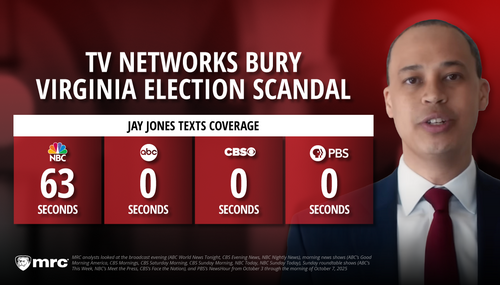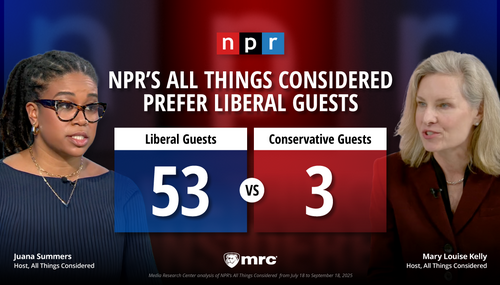On Thursday, Venezuela's Supreme Court decided to grant Bolivarian socialist "President" Nicolas Maduro what an unbylined Associated Press report described as "broad decree powers" to deal with the economic crisis and humanitarian nightmare he and his predecessor Hugo Chavez created.
Maduro's government now for all practical purposes has total control of that nation's economy, which in the current circumstances — runaway inflation and chronic shortage of so many of life's basic necessities that "savage suffering" has now taken root — is really the only thing that matters.
The court decided that the Venezuelan National Assembly's specific refusal to enact Maduro's proposed "expanded economic authority" on January 22 was irrelevant, and that Maduro could, in words used at the New York Times, impose a "decree (which) is vague on specifics but would give Mr. Maduro new powers." In other words, the "specifics" will be whatever Maduro wants them to be.
13 of the court's 32 members were installed by the Chavista-dominated lame-duck National Assembly just days before a new assembly, dominated by Maduro's opposition after the socialists were trounced in early-December elections, took "control" of what has been turned into an essentially powerless body.
As will be seen, the U.S. press's two primary gatekeeping outlets will only acknowledge that Maduro's opponents are characterizing this state of affairs as de facto coup, when the fact of the matter is that Maduro has pulled off a de facto coup.
Here is the AP's framing in that unbylined Thursday evening report, beginning with a breathtaking deceptive headline and opening sentence:
VENEZUELA TOP COURT OVERRULES CONGRESS ON ECONOMIC EMERGENCY
Venezuela's Supreme Court overruled the opposition-controlled congress on Thursday and granted broad decree powers to President Nicolas Maduro.
Congress last month had refused to approve Maduro's declaration of an economic emergency. In a decision made public Thursday night, the high court ruled that Maduro did not need congressional approval after all. It said the declaration of emergency is now in effect, granting Maduro greatly expanded authority over the economy for 60 days.
Critics of Venezuela's socialist administration immediately denounced the move as unconstitutional and tantamount to a coup.
The headline and opening sentence claim that the court "overruled" the Assembly. That's false. The court told the Assembly: "What you did means nothing, because what you did was irrelevant, because anything you do is and will continue to be irrelevant as long as we make similar rulings."
In other words, Maduro and his packed court have assumed all meaningful legislative functions. They run the country. The legislature has no role. That, objectively, is a coup d'état (“a change of government illegally or by force”).
The Times also went into "opponents say" mode:
A conflict over whether Venezuela’s leftist president should be allowed to exercise expanded economic authority intensified Friday as the opposition accused him and the courts of an illegal power grab.... The decree is vague on specifics but would give Mr. Maduro new powers to increase domestic production and ensure that Venezuelans have access to food and water, according to a text that was published last month.
... While the Venezuelan opposition controls the Assembly, Mr. Maduro’s leftist party controls the courts and the executive branch.
And the courts are saying they can and will overrule anything the legislature does which doesn't fit the Bolivarian socialist agenda.
Some readers may be wondering what wondrous things Maduro has in mind with these "emergency powers" now in hand. The AP report has the predictable answers:
Maduro hailed the decision during a televised address, promising to start flexing his expanded powers immediately.
... In recent weeks, Maduro has proposed increasing tax revenue, raising the price of gasoline and ramping up Venezuela's already strict economic controls.
Among other things, the decree could allow him to decree how state funds are used, and take over private warehouses and distribution trucks.
So Maduro will being doing more of the things which brought Venezuela to its knees.
Zero Hedge has more. Lo and behold, there are others besides those in the opposition legislature who are willing to describe Venezuela as it is, but who the U.S. nonbusiness establishment press won't quote or cite:
... “This is a tyranny, which has been very successful in disguising as a democracy, and has even allowed itself to lose an election,” Moisés Naím, a former Venezuelan minister and fellow at the Carnegie Endowment for International Peace said.
... “It goes beyond the crime and economic deterioration,” Leonardo Briceno who spoke to WSJ and runs a Caracas public-relations company said. “It’s imagining a scenario where my daughter needs a medication and we can’t find it. That scares me the most.”
... the public may have been unwilling to stage an outright rebellion with inflation at 200%, but at 720% it's difficult to see how things won't careen into outright social upheaval in the not so distant future. Especially once the country defaults and the public comes to realize just how wasteful the government is with what should be a vast store of national oil wealth.
Maduro has the government, the courts and the military at his side. A repeat of what happened in Castro's Cuba in the late-1950s certainly can't be ruled out.
I wonder what socialist Bernie Sanders, or quasi-socialist Hillary Clinton, who can't say how Democrats differ from socialists, have to say about all of this?
Cross-posted at BizzyBlog.com.




